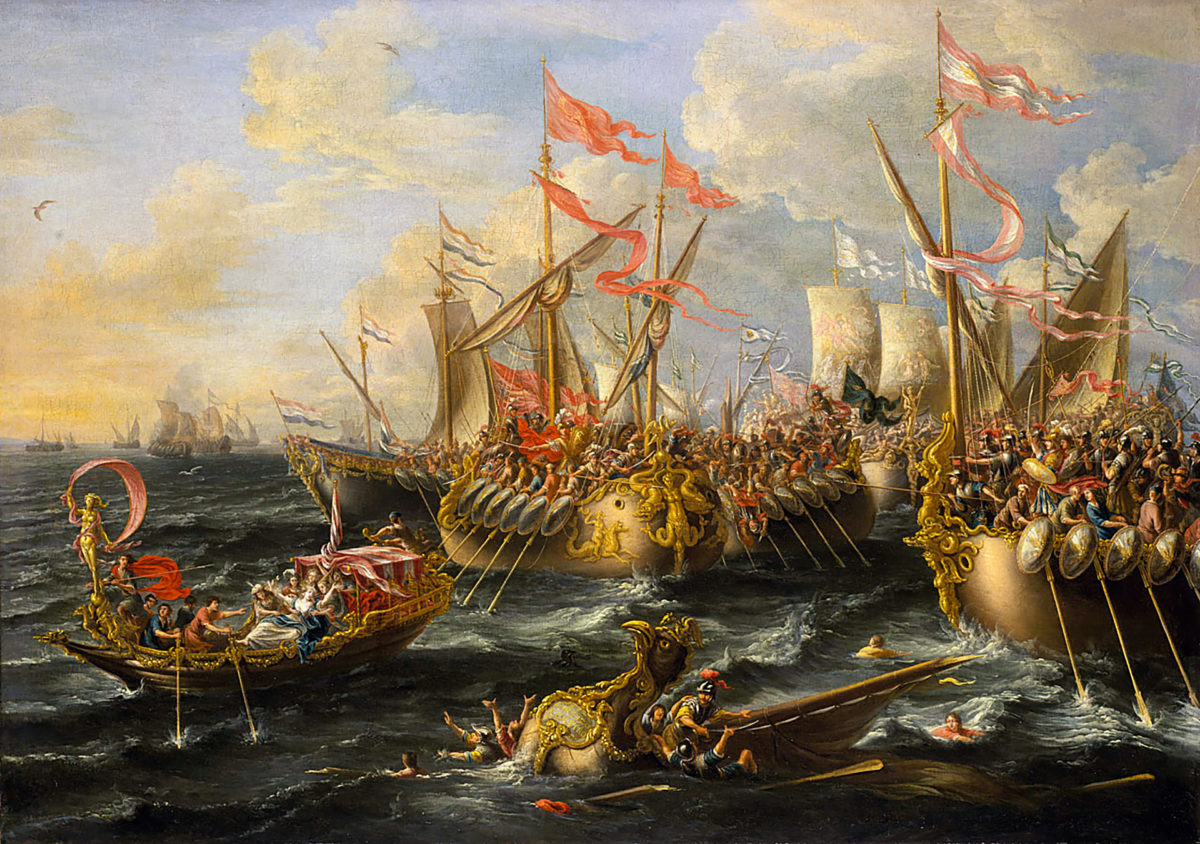There are moments in time that shape history and alter the tenuous timeline of the world as we know it. Actium was one of them. This epic sea battle between Octavian, later Caesar Augustus, and the forces marshaled by Mark Antony and Cleopatra in 31 B.C. set the wheels in motion for a change of historic proportions.
Following Julius Caesar’s assassination in 44 B.C., civil war erupted across Rome as powerful forces vied for control of the Republic. That struggle eventually led to a decisive faceoff in the Ionian Sea near the entrance of the Ambraciot Gulf in Greece with the fortunes of Western civilization hanging in the balance.
Barry Strauss’s new book is a fun and exciting examination of the events leading up to and involving the great battle, as well as the fallout afterward. He recounts this story that you think you know with vigor and enthusiasm, including enticing anecdotes and insightful references to put the times and people in perspective. Far from a stodgy retelling of history, he enlightens his prose with amusing references, like “the fleets faced each other like a couple of gunslingers on the streets of Laredo ….”
Strauss, a leading expert on ancient military history and author of several books on the subject, traces the missteps of Antony as the once-triumphant Roman general and Cleopatra tried to lure Caesar’s heir apparent, Octavian, into a land battle. A strung-out supply line and troops spread thin over a large territory left the self-described human embodiment of the god Dionysus and his Egyptian queen in a vulnerable and exploitable position.
Through shrewdness and cunning, Octavian forced his enemies to meet him at sea, where his most formidable weapon could be deployed. That, of course, was his admiral Marcus Agrippa. Perhaps one of the greatest naval tacticians of the ancient world, Agrippa continually defeated Antony’s fleets in a series of engagements leading up to the big battle. At Actium, nearly 200,000 men and almost 1,000 ships gathered for the decisive meeting as Octavian’s admiral outmaneuvered Antony’s commanders at every opportunity.
The rest, as they say, is history. With Octavian the victor, the Republic was gone and the Roman Empire was established as the new Caesar took control. The world is different today because of what happened, and we can thank Strauss for a lively and entertaining account of how it all played out.
historynet magazines
Our 9 best-selling history titles feature in-depth storytelling and iconic imagery to engage and inform on the people, the wars, and the events that shaped America and the world.






